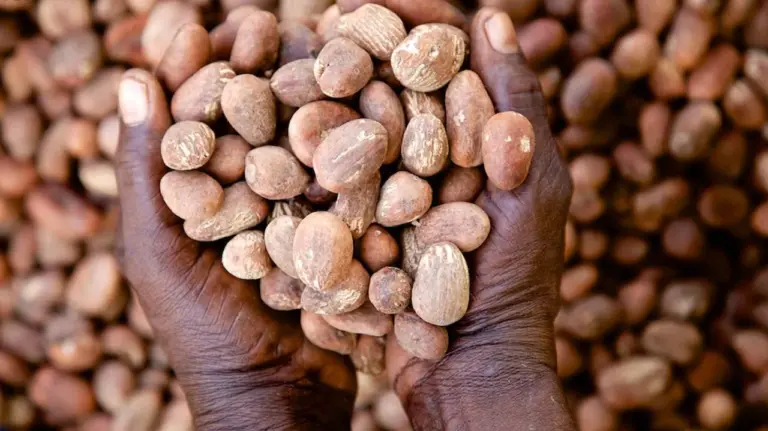Nigeria’s recent decision to suspend raw shea nut exports for six months has sparked mixed reactions, with experts weighing both the benefits and drawbacks.
Professor Mohammed Ibrahim, former secretary of the National Shea Products Association of Nigeria (NASPAN) and communications officer at the Centre for Shea Research, Federal University of Technology, Minna, told BBC News Pidgin that while the government’s move could strengthen the local economy, it also threatens to unsettle investors who have already committed large sums to the industry.
The federal government explained that the ban aims to shift Nigeria from being a major supplier of raw nuts to a global powerhouse in refined shea products. Despite contributing about 40% of the world’s shea nut production, Nigeria currently earns less than 1% of the $6.5 billion global market.
Professor Ibrahim noted that the strategy makes sense in the long run. By processing shea into butter and other high-value products, Nigeria could earn far more than it does by exporting raw nuts.
“At the moment, a ton of raw shea nuts sells for between $800,000 and $900,000,” he explained. “But one ton of shea butter can fetch as much as $3.5 to $4 million. That’s the real value the government wants Nigeria to capture.”
According to him, Nigeria exported 368,414 metric tonnes of shea nuts in 2024. Most of these went to European markets, with the United Kingdom and the United States as top buyers, though regional sales also extend to other African countries.
Currently, Niger State leads Nigeria in shea production, followed by Kwara and Oyo states. Women form the bulk of the workforce, gathering and processing the nuts in rural areas.
While the ban may slow business in the short term, Ibrahim believes the long-term outcome could be transformative — boosting rural incomes, creating jobs, and increasing Nigeria’s stake in the global value chain.
Nigeria remains the world’s top shea producer, ahead of Mali, Burkina Faso, Benin, Ghana, Ivory Coast, and Togo. Interestingly, many of these West African countries have already banned raw nut exports in order to promote value-added processing at home.
For now, Nigeria’s gamble is clear: endure temporary market shocks in exchange for a future where the nation earns more from what it grows, rather than giving away its wealth cheaply.

